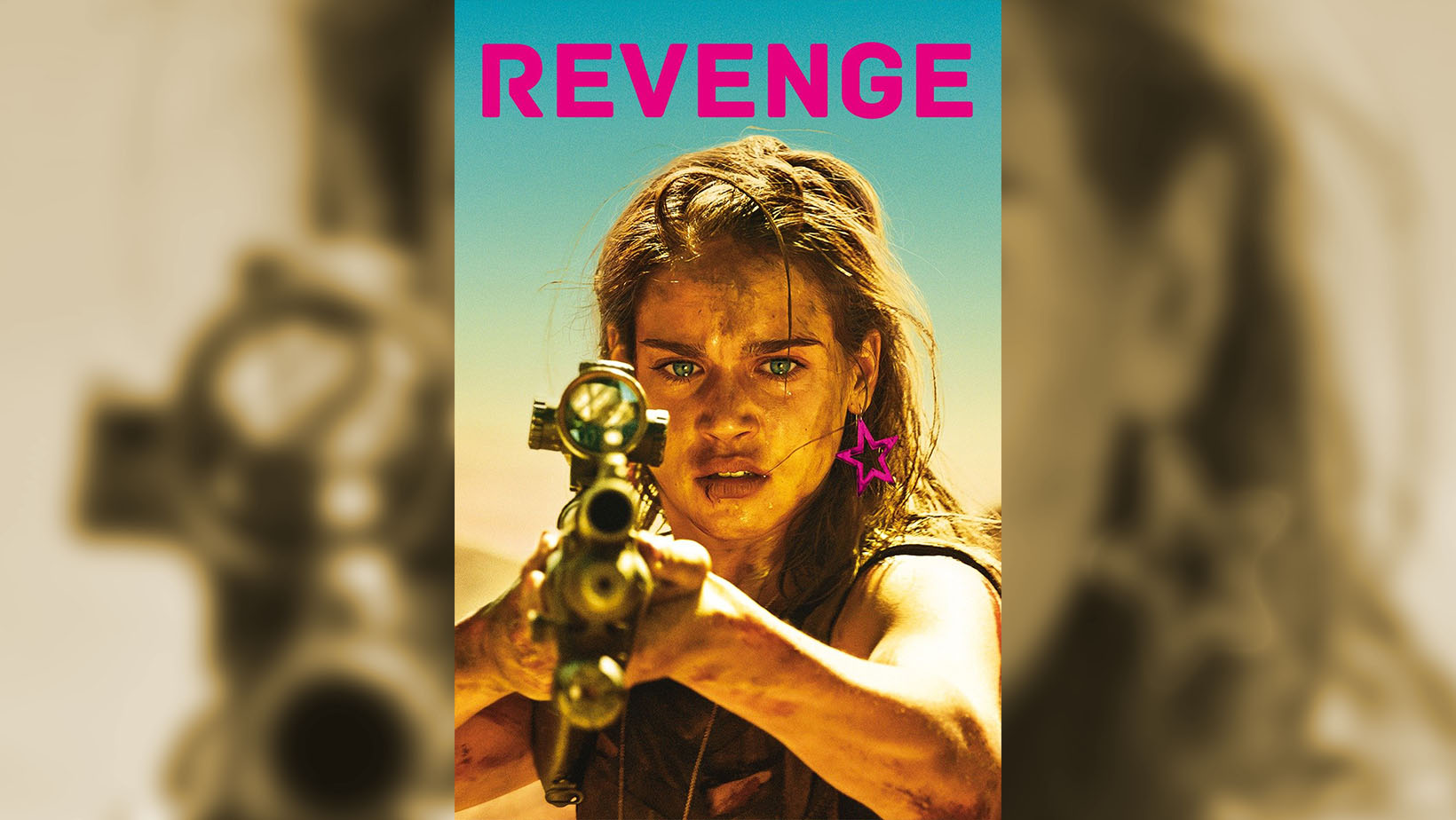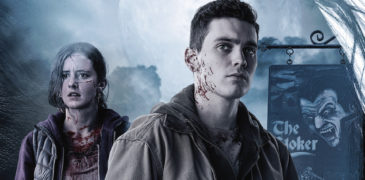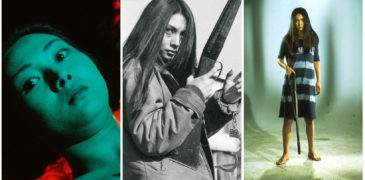
So often the horror genre seeks to hold a mirror up to society’s most profound and insidious anxieties. From concerns surrounding the development of nuclear weapons during the 1950s, as typified by John Carpenter’s legendary ‘The Fly’, to the Satanic Panic of the 1980s which appeared to be foreshadowed by ‘The Exorcist’ in 1971. Revenge is a blood-soaked force to be reckoned with and clearly reveals the transformative power of the #MeToo era, the movement that finally gave a voice to victims of sexual assault, and ultimately, the patriarchy.
Coralie Fargeat’s 2017 feature debut film employs the use of saturated blue and pink hues to follow Jen’s transcendence from a silenced victim of objectification to a powerful predator bringing retribution and revenge upon her attackers. The hyper-colourful palette is juxtaposed with a backdrop of the desolate and isolated desert to expose the harsh environment and treatment Jen is subjected to and clearly plays into the conventions of New French Extremism.

Matilda Lutz plays the character of Jen, who is invited along to her boyfriend Richard’s remote luxury villa to engage in a romantic rendezvous when, unbeknownst to her, his two friends decide to drop by a day early for their hunting trip. What ensues is the direct and brutal violation of Jen’s body, as she is raped by one of her boyfriend’s friends. Her violation is then heightened when Richard ignores her distressed pleas for help and attempts to expose her by throwing her over the cavernous desert cliff. Left for dead, beaten, and bloody, Jen engages in a tense cat-and-mouse chase to enact her vengeance upon the assailants of her remorseless attack.
Interestingly, the pervading influence of the male gaze is outlined in even the opening scene, as we view the setting quite literally through the eyes of her misogynistic partner’s sunglasses reflection. Jen’s introduction in ‘Revenge’ is diluted, she is barely visible in the first shot and her first spoken line comes eight minutes into the movie, her call of simply “Richard” being muffled as we hear it through a pane of neon pink glass. Through this, Fargeat exploits stereotypes placed upon women, and the actress who plays Jen reveals she read Marilyn Monroe’s biography to prepare her to encapsulate satirical feminine sex appeal and complete objectification.

The objectification that is so present in the first act of the movie is subverted and used as a tool for empowerment in the last act. At first, Jen’s outfit and exposure of her body represent her sexualisation, but by the end of the movie, she is enacting her vicious and brutal vengeance in the same outfit, subverting the expectations that were placed upon her initially.
Due to this, ‘Revenge’ has been hailed as a fresh feminist take on the rape-revenge sub-genre. Interestingly, however, in an interview for Bird’s Eye View, Fargeat acclaimed ‘Mad Max’, ‘Rambo’ and ‘Kill Bill’ as inspiration for her subversive Final Girl, she was interested in creating the plot “completely from her imagination and building a world and a universe”. The influences of such strong characters as Beatrice Kiddo and Furiosa become tangible in the final act of ‘Revenge’. Jen is forced to almost eradicate the woman she was once seen as in order to not only survive but turn the tables on her attackers and methodically hunt them down, one by one; as Fargeat puts it, she is “symbolically born from her own ashes”.

Her emergence as a woman on a furious mission for redemption is shown through her nail-biting self-cauterisation with a beer can after being savagely impaled through the stomach by a tree branch. They can leave her branded with the logo, a phoenix, which exemplifies her metamorphosis from a naïve mistress to a vicious killing machine. Her resilience in the face of oppression and impending death is admirable as she attacks her prey with force, managing to stab Dimitri and claim his gun and quad bike for her own.
During the final scene, Richard is stripped of all possessions that he previously used to signify his masculinity. He has no leather jacket, no motorbike, and no cigarette. His nudity represents his vulnerability in that moment, and that he is finally facing the consequences of enacting such violent acts upon his girlfriend, and on a wider scale, of upholding patriarchal attitudes.
‘Revenge’ isn’t perfect with its subversion of traditional rape revenge movies; the camera shots linger for a little too long on Jen’s body and it could be argued that her transformation came about only due to the violation she endured. However, the director has certainly brought something fresh and revitalised the genre through this bad-ass final girl who manages to bring a sense of catharsis to the viewer. In the age of #MeToo and the prevalence of violence against women, ‘Revenge’ does exactly what it needs to: brutalises its predators and brings a refreshing taste of retribution to a parched sub-genre.

If you also have any interest in a free trial of Shudder, too, we have an extended trial available to our readers:
More from Shudder
“A crew of hardy road workers, led by a bickering father and son, must survive the night when they accidentally awaken an ancient Irish vampire.” All horror legends begin with… Fresh off its world premiere at Fantasia and coming exclusively to Shudder this week, director Rebekah McKendry’s new film Glorious is a mildly amusing slice of cosmic horror that does… 2020 has been a turbulent year, with many productions being delayed into 2021, or outright canceled. However, that did not stop some great films from coming out in 2020. Here… Despite the belief that this humble viewer may have been drawn in by such a provocative title, Porno, (also cringingly known as Fangoria’s Porno) premise was enough to pique my interest…. Terrified, existing as one of the earlier Shudder exclusives, is a a supernatural horror film from Argentina that has seen a fair amount of accolades – it has been sitting… It’s hard to remember when the “women’s prison” subgenre was iconoclastic, given its popularity these days. But, before we had series like Orange is the New Black, Vis a Vis,…Boys from County Hell Team Review – Ancient Evil From Ireland
Glorious (2022) Film Review – An Arterial Spray of Cosmic Horror
The Grimoire of Horror Presents: The Best Films of 2020
Porno (2020) Review: Not Actually Porno…
Terrified (2017) Film Review – Do You Believe in Pure Evil?
The Prisoner Scorpion Movies Ranked





